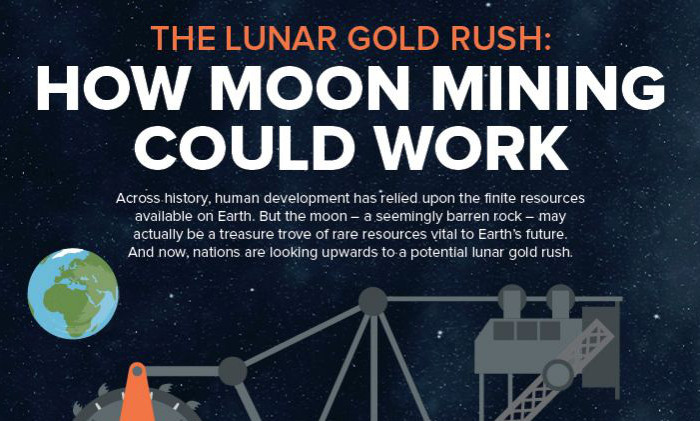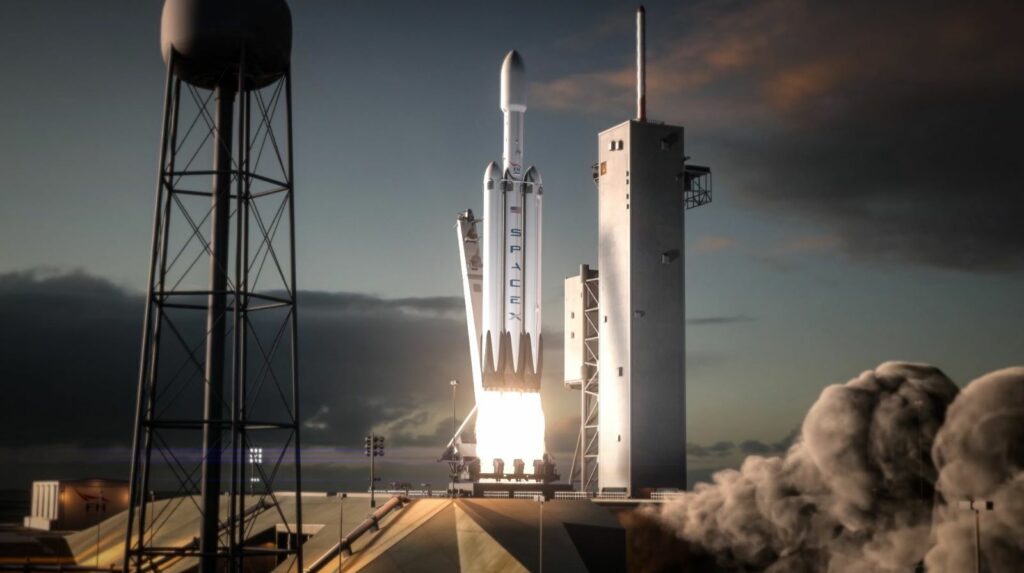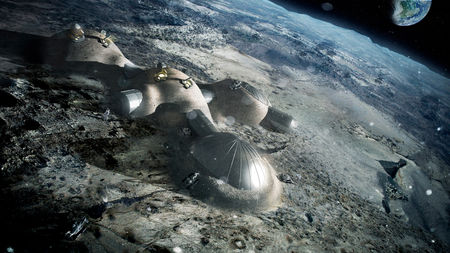China plans to start building a lunar base and to land Taikonauts on the moon before 2030. The Chinese intend to start this project with Long March rockets that can carry 28 tons to orbit.

But we are in position to outdo the Chinese. We have a rocket that will deliver more than twice a Chinese rocket’s cargo to orbit, at a fraction of the price. It’s SpaceX’s Falcon Heavy, which has launched and landed successfully six times carrying payloads to space.
We will soon have another SpaceX rocket that can take as much as 150 tons to orbit at an even lower price, the Starship, a space ship designed to carry 100 passengers to orbit, to the moon, or to Mars. But regular launches of the 39-engine Starship are two years away. Says Dr. Ajay Kothari, a member of the Space Development Steering Committee and President of Astrox Corporation, we can use those two years to build our own infrastructure on the moon. And to leave China in the dust.

Using SpaceX’s Falcon Heavy.
Dr. Kothari’s analysis explains how we can use the Falcon Heavy to pre-position cargo on the moon or Mars long before the Chinese arrive. Cargo that will later be used by American astronauts landing in the Starship to build a permanent habitat complete with construction and mining equipment. And Dr. Kothari demonstrates how we can do all this while we wait for the Starship. He shows how we can do it today.
Mining equipment to mine what? The ice at the South Pole of the moon. Ice is gold in space. It can be turned into breathable oxygen, drinkable water, and, most important, rocket fuel.

The key to Dr. Kothari’s vision is launching four to six Falcon Heavies over a few days. One upper stage would carry cargo. The rest would be filled with extra propellant. In orbit, the fuel-filled upper stages would refuel cargo-carrying Falcon Heavy upper stages so the cargo-carriers could land on the moon’s surface. As a bonus, the empty Falcon Heavy tanks could be used as moon houses—as lunar habitats.
What’s more, Falcon Heavy upper stages refueled in space can go anywhere in the solar system. And with some modifications, they can land and take off on both the moon and Mars.
Dr. Kothari’s analysis suggests how we can use the Falcon Heavy to put construction equipment, ice-mining equipment, and buildings on the moon. Not to mention food and oxygen. And a few extra space suits.

So that once the Starship brings its first passengers to the lunar surface, those people have everything they need to settle down in comfort, to survive, and to thrive.
Before the moon is settled by China.
______
Howard Bloom of the Howard Bloom Institute has been called the Einstein, Newton, and Freud of the 21st century by Britain’s Channel 4 TV. He is the founder and chair of the Space Development Steering Committee and co-founder and co-chair of the Asian Space Technology Summit. One of his seven books–Global Brain—was the subject of a symposium thrown by the Office of the Secretary of Defense including representatives from the State Department, the Energy Department, DARPA, IBM, and MIT. His work has been published in The Washington Post, The Wall Street Journal, Wired, Psychology Today, and the Scientific American. He does news commentary at 1:06 am Eastern Time every Wednesday night on 545 radio stations on Coast to Coast AM. For more, see http://howardbloom.institute.

